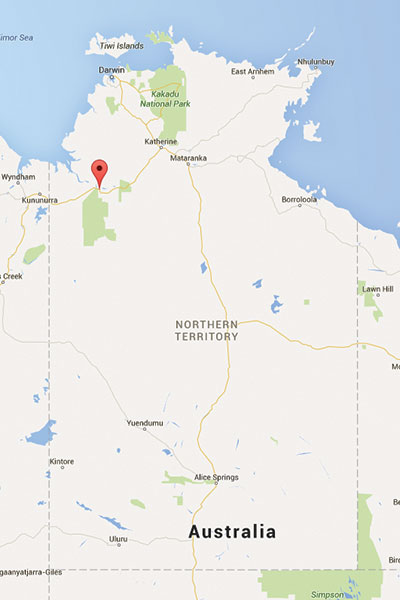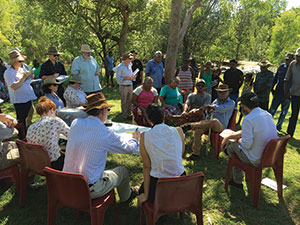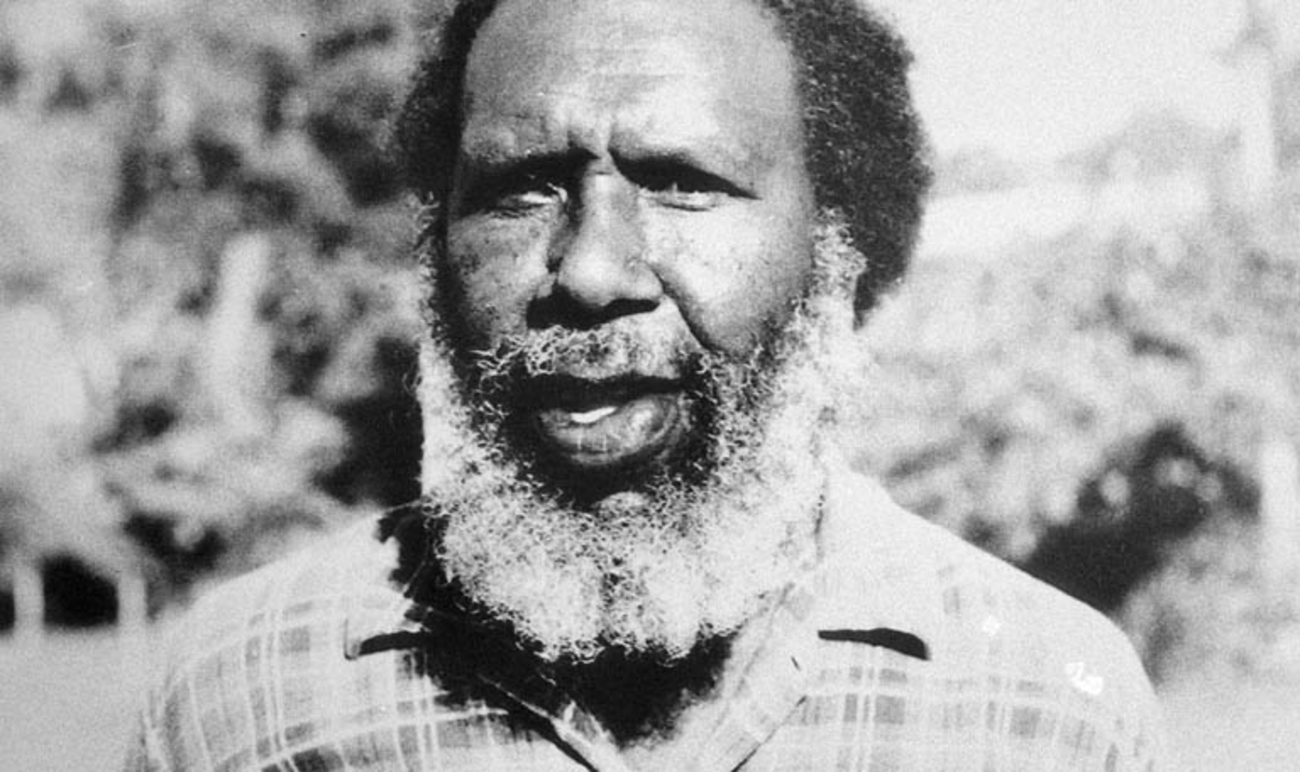‘While no amount of money can adequately compensate for cultural loss and its consequences, the High Court’s recognition of the implications caused by incursions and infringements on the fundamentals of our cultures are of some comfort.’ Dr Jackie Huggins, Co-Chair, National Congress of Australia' First Peoples
The High Court of Australia's decision to compensate Ngaliwurru and Nungali Peoples was hailed by many as the most important native title decision since the historic Mabo ruling in 1992.
The Timber Creek compensation case, known officially as the Griffiths Case, is the first time the High Court assessed compensation for the extinguishment of native title rights and interests under the Native Title Act 1993 (Cth).
The Griffiths Case tested:
- the criteria for assessing compensation following extinguishment of native title by compulsory acquisition of land under the Native Title Act 1993 (Cth); and
- the scope of ‘just terms’ compensation provided under the Act.
Running the case
In 2009, Ngaliwurru and Nungali peoples received a determination of their exclusive possession and non-exclusive possession of native title over a large area of the Northern Territory, including areas of a township called Timber Creek.
In 2011, the Ngaliwurru and Nungali peoples lodged an application for compensation against the Northern Territory and Commonwealth of Australia for loss or diminution of native title or other effects of certain government grants of historic pastoral leases, other land titles and public works on their non-exclusive native title in the town of Timber Creek. These extinguishing acts had been validated by the Native Title Act 1993 (Cth) (Griffiths v Northern Territory of Australia [2016] FCA 900).
In August 2016, the Federal Court awarded approximately $3.3 million compensation to the Ngaliwurru and Nungali peoples. This compensation was made up of spiritual loss ($1.3 million), economic loss (calculated at eighty per cent of the freehold value of the affected land) and simple interest on the sum awarded for economic loss.
On appeal, the Full Federal Court agreed with most of the trial judge’s findings but reduced the economic loss from eighty per cent to sixty five per cent of the freehold value of the affected land, reducing the total compensation to around $2.9 million (Northern Territory v Griffiths [2017] FCAFC 106).
On further appeal, the High Court was asked to decide whether the Full Federal Court’s award of compensation to the Ngaliwurru and Nungali peoples should stand.
The Ngaliwurru and Nungali peoples argued that their native title was extremely vulnerable to extinguishment by the Northern Territory and that the Federal Court’s approach to compensation was a breach of the Racial Discrimination Act 1975 (Cth). This was because applying a discount from 100 per cent of freehold value to their native title resulted in a valuation of their rights and interests which was different to all other land titleholders.
The Northern Territory and Commonwealth of Australia argued that the Federal Court’s assessment approach was wrong in various ways and the $1.3 million award for cultural loss was excessive.
On 13 March 2019, five of the seven High Court judges generally agreed with the Full Federal Court’s valuation methodology but reduced the amount of economic loss from 65 per cent to 50 per cent of the freehold value of the affected land. The High Court agreed that $1.3 million for cultural loss was reasonable and the total amount of compensation awarded was reduced to approximately $2.5 million.
‘This important finding means that the spiritual connection of Aboriginal people to their country is paramount in Australian law – as it should be. Today’s decision is the end of ground breaking native title litigation by the Ngarliwurru and Nungali peoples – the native title holders of the town of Timber Creek in the Victoria River District.’ Jak Ah Kit, Northern Land Council interim CEO
Why was the High Court's decision significant?
- The Native Title Act was found to limit the amount of compensation for extinguishment of exclusive possession native title to the value payable for the compulsory acquisition of a freehold estate in the land.
- The High Court determined that non-exclusive possession native title, lacking the power to exclude others or control the behaviour of others on the land, is a lesser right to land and applied a 50 per cent discount from the freehold value of the land.
- The majority did not consider the Native Title Act compensation scheme discriminatory because the proper valuation comparison was not between native title with freehold title. It was a comparison of non-exclusive and exclusive possession native title. This was a comparison of ‘like with like’ and the inalienability of native title should be disregarded.
- Compensation is subject to a ‘just terms top up’ under sections 51A and 53 of the Native Title Act and $1.3 million for cultural loss was appropriate when measured by the standards of the Australian community.
- Compensation must be assessed on a case by case, lot by lot, basis. This requires an assessment of the nature of the extinguishing act and its timing, the identity of the claimants, their connection to country and the particular impacts of the extinguishing acts on the native title rights and interests.
- Considerable uncertainty remains about the assessment of compensation for many other impacts on native title including mining projects and other land uses inconsistent with native title.
Further resources
- High Court awards Timber Creek native title holders $2.5m, partly for 'spiritual harm'
- Landmark High Court decision guides how compensation for native title losses will be determined
- Northern Territory v Mr A. Griffiths (deceased) and Lorraine Jones on behalf of the Ngaliwurru and Nungali Peoples [2019] HCA 7, 13 March 2019





